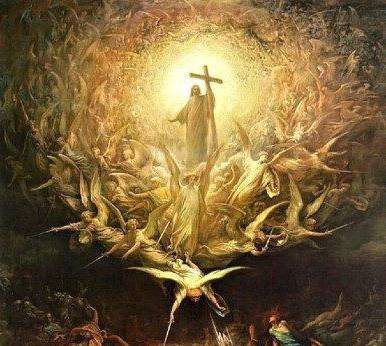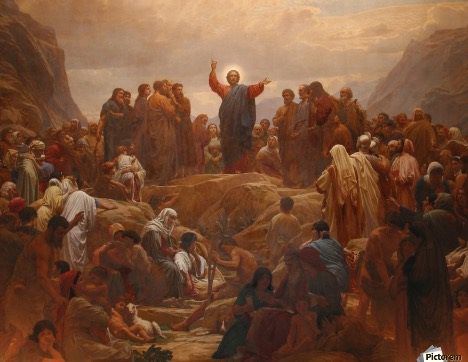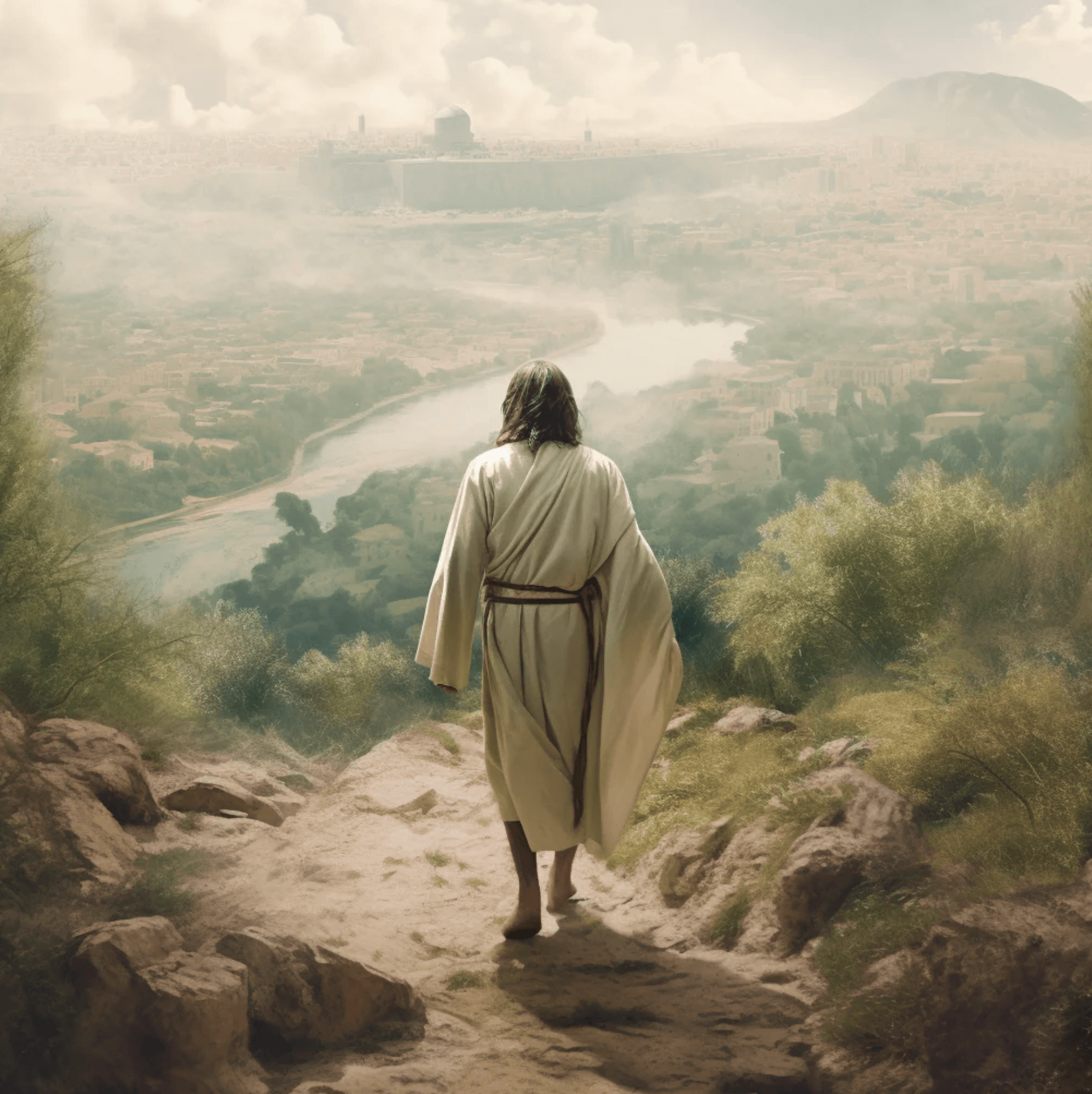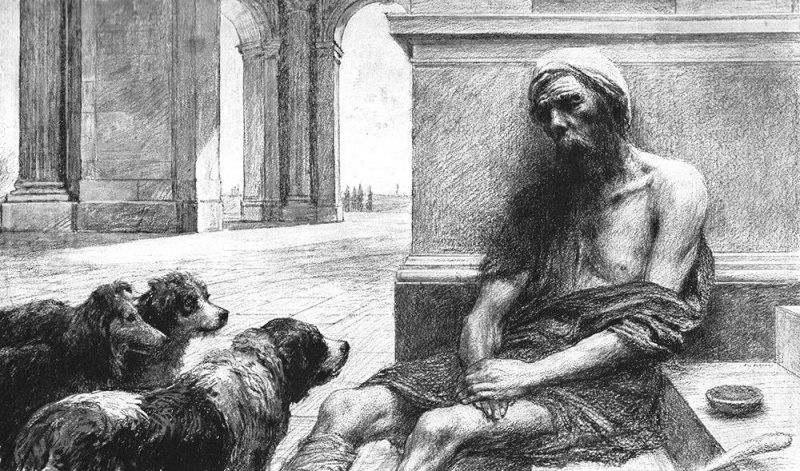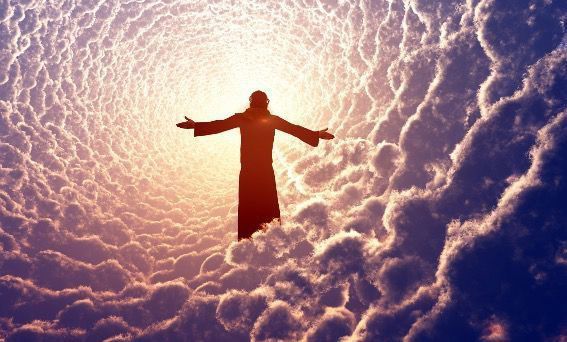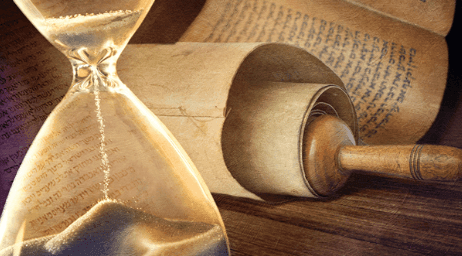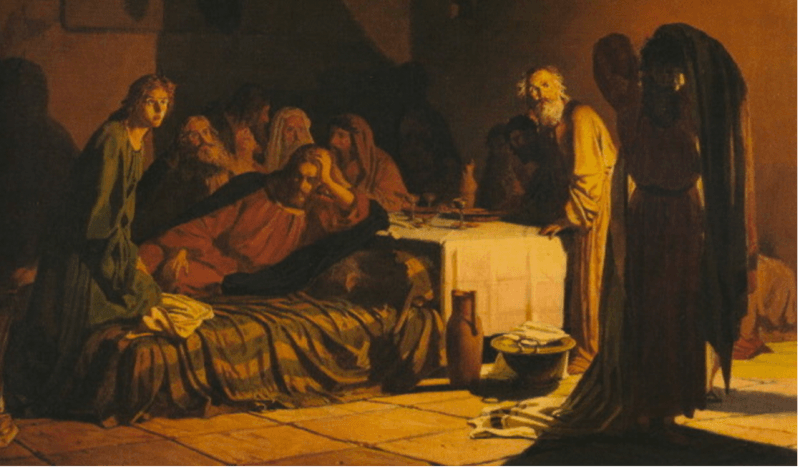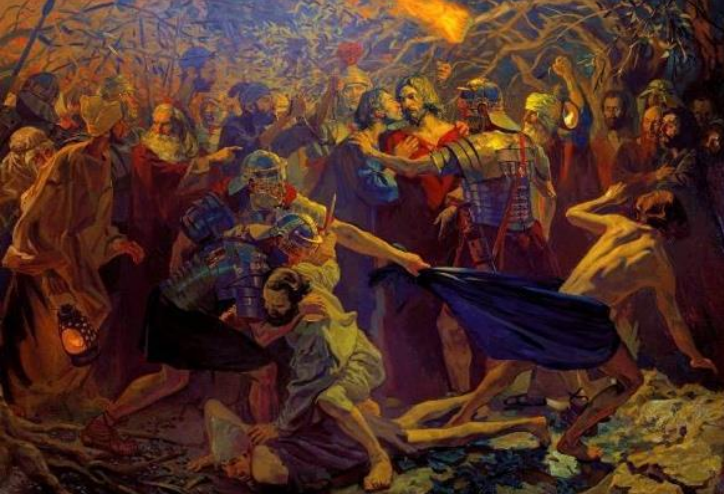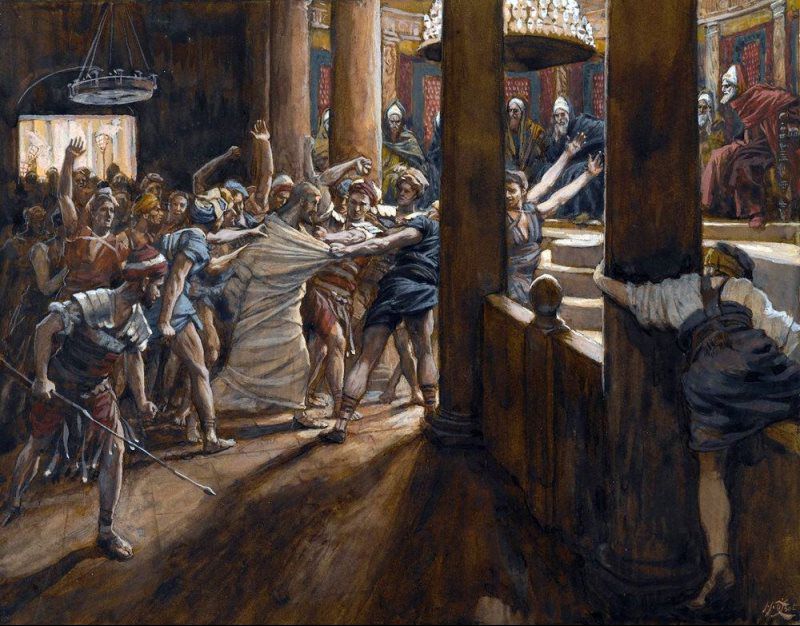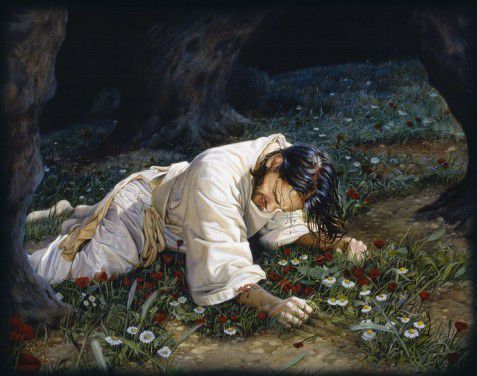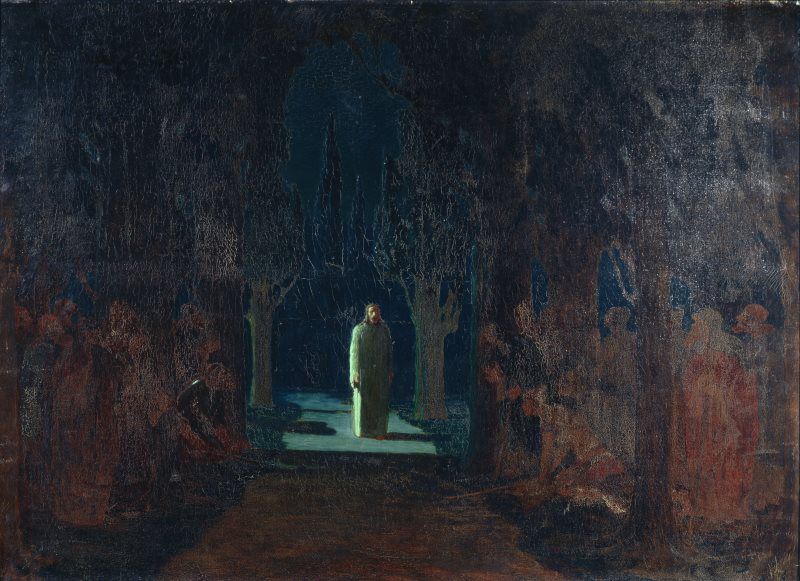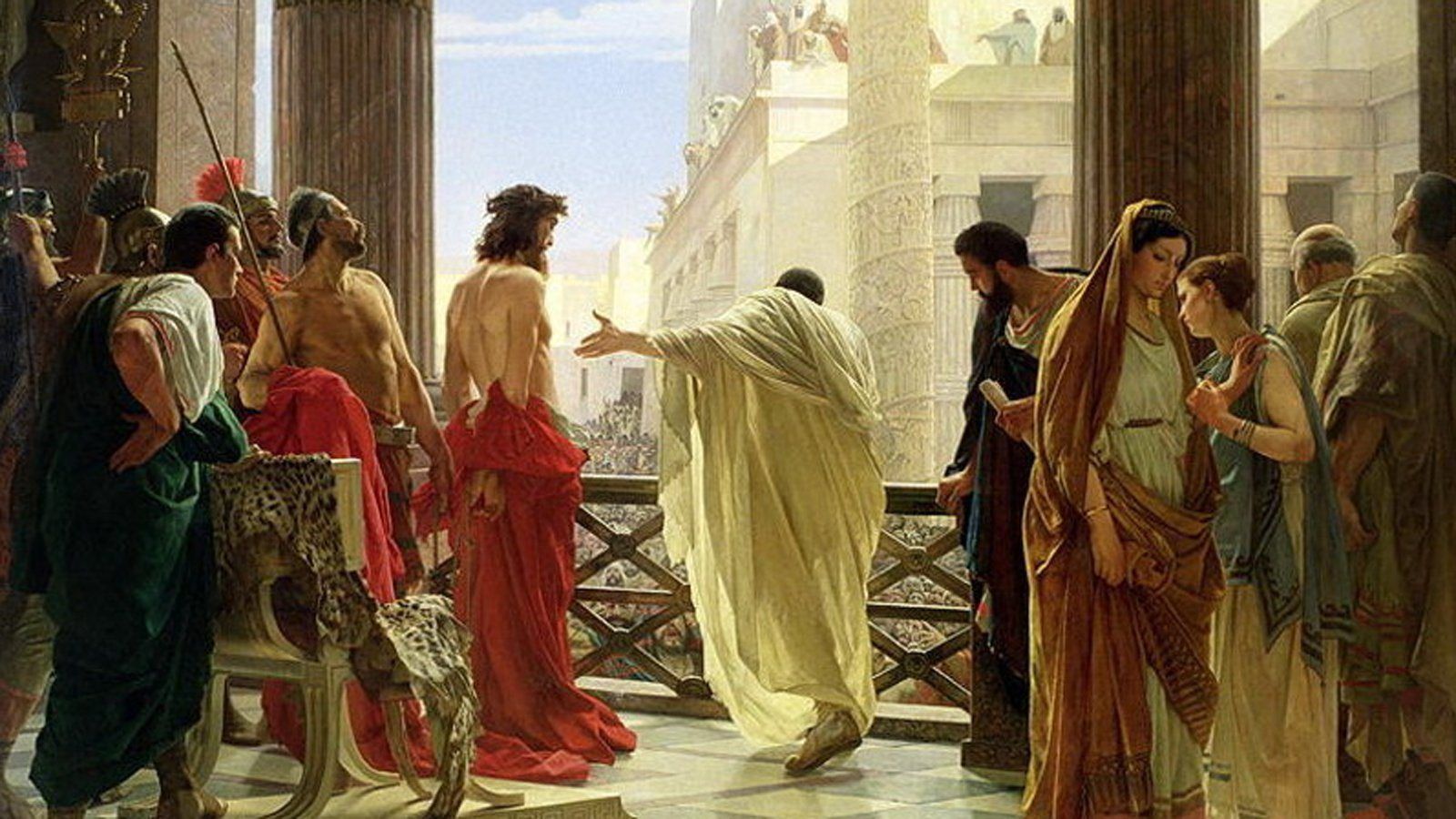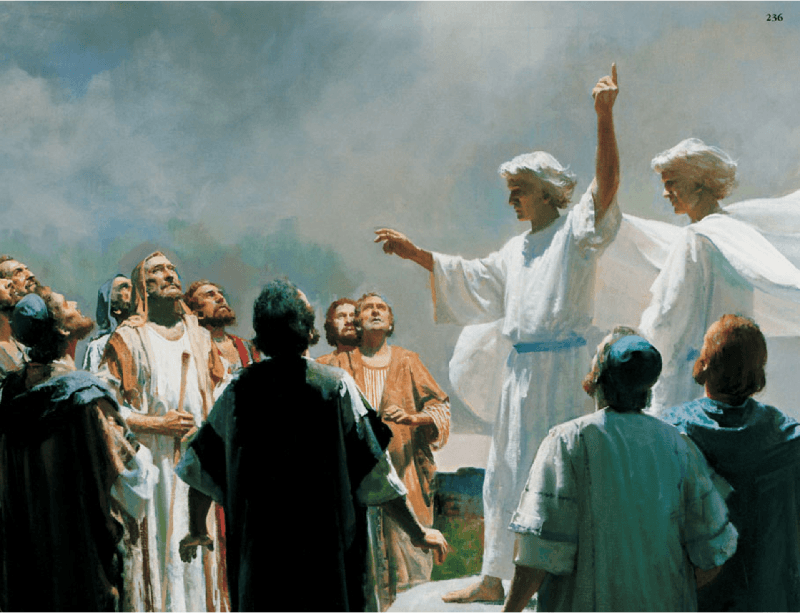LENTEN REFLECTIONS
In Genesis 3:15 God promised a Savior that would put an end to the works of Satan and restore eternal life to us. Satan was present during that prophecy and was determined to make every effort he could, to stop our Lord from reaching the Cross and securing our Salvation. The efforts of Satan to destroy the seed line of Christ have formed: The Great Conflict of the Ages.
Click on the link above to read this insightful reflection that provides Biblical documentation of this conflict.
In the Four Gospels, the Ministry of our Lord is categorized by subjects rather than years. Which are of far greater importance than time. The "years" are mainly conjectural, but the subjects are Divinely recorded facts. The two subjects of the Gospels are the Kingdom and the King. They highlight our Lord as the central figure of each Gospel. This structure is consistent throughout all four Gospels. The details are fascinating when compared with the interrelation of the four Gospels.
Click on the title above to begin this reflection.
At any time, Christ could have nourished his hunger and quenched His thirst during His 40 days in the wilderness. Yet He would not exercise divine power for His own benefit. He had come to face the trials of life as we all must, but in doing so, He provided an example of faith and submission. Never in Christ’s life did He work a miracle for His own benefit. Jesus began His response to the Tempter with these words:
"It is written”
He relied on the Word of God to overcome temptation. An example, of what we should rely upon when faced with the allurements of this world that entice us to sin.
Click on the title above to begin this reflection.
In the Gospel of Luke, our Lord tells a story of a rich man who lived in luxury and a poor man named Lazarus who was laid at the rich man's gate. In the course of time both men died. This seemingly seems to be the end of the story...but it really has just begun and it has a profound connection with the rejection of our Lord.
Click on the title above to study this chapter.
Through the inspiration of the Holy Spirit, the Old Testament prophets wrote of the sufferings of the coming Messiah and they wrote of the glory that should follow the sufferings, but there was nothing to tell them whether the glory of the Messiah was to follow immediately after the sufferings, or whether there would be an interval of time before the glory would be revealed. Scripture tells us, even angels desired to know these things.
Click on the title above to begin this reflection.
We are furnished by Scripture with certain facts and fixed points which, taken together, enable us to (1) determine the events which filled up the days of "the last week" of our Lord's life on earth; (2) to fix the day of His crucifixion; and (3) to ascertain the duration of the time He remained in the tomb.
Click on the title above for an overview of this reflection
During the Last Supper our Lord states, “a little while longer and the world will see Me no more” (John 14:19). It was about 30 hours, from the moment the Lord was taken down from the cross and entombed, He disappeared from the eyes of the world.
In this reflection, we will look at those last 30 hours of our Lord’s life as recorded in the Gospel accounts.
Click on the title above to begin this reflection
When you read Matthew’s account of the Last Supper, one incredible truth surfaces. Our Lord is the person behind it all. He selected the place, designated the time, and set the meal in order. These were the last hours of our Lord’s life and rather than being served, He instead fulfilled His role as a rabbi by guiding His disciples through the Passover. He was in charge. He was on center stage. He was the person behind and in the moment. In this Lenten Reflection, we will examine some of the events and actions during the last night of our Lord's life.
Click on the title to begin this study
The immensity of our Lord’s execution makes it impossible to ignore. Everybody has an opinion. Everyone is choosing a side. You can’t be neutral on an issue like this one. Apathy? Not this time. It’s one side or the other. All have to
choose and choose they did…even the unlikeliest of characters: Malchus, Barabbas, Pilate, the Disciples…
Click on the link above to consider that day from their eyewitness perspective.
In the last week of His life, our Lord deliberately set His face toward Jerusalem—and certain death. This is no ordinary week. Even the angels were silent as they pondered those final days.
In this study, we examine 12 fascinating scenes in those last days of our Lord…scenes that are often overlooked, but full of intrigue and wonderment.
Click on the title above to study this chapter.
As our Lord enters Gethsemane, HetellsPeter, James, and John His soul is“overwhelmed with sorrow to the point of death.”Never has He felt so alone. What must be done, only He can do. An angel can’t do it. No angel has the power to break open Hell’s gates. A man can’t do it. No man has the purity to destroy sin’s claim. No force on earth can face the force of evil and win—except God.
Click on the link above to read a detailed narrative of our Lord’s agony in Gethsemane and trial before the Sanhedrin.
The "7 Church Visitation" is a Christian tradition that takes place on Holy Thursday, the day before Good Friday, to commemorate the Last hours of our Lord's life. This practice involves visiting seven different churches, which represent seven stations where the Lord stopped during his journey from the Last Supper to Calvary. During each visit, participants offer prayers and meditate on the Passion of Christ. The seven churches are usually located in close proximity to each other, and the entire visitation takes several hours to complete. This tradition is observed in many countries around the world, and is a way for Christians to reflect on the significance of Holy Week and prepare themselves for Resurrection Sunday.
Click on the title to begin this study
What is so important about the sixth hour described in John 19:14? What does it refer to? The sixth hour of what? A number of false doctrines have been built on this scripture, because the most obvious way to understand it causes contradictions with a number of other scriptures. Is it the sixth hour of the day? or the sixth hour of the night? or was John using Roman time instead of the customary Jewish time? Or is there some other answer? An important thing to note is that it was at the end of our Lord's trial, when Pilate was about to turn Him over to be crucified, so it would only be a short time before he was on the cross.
Was it the Sixth Hour of the Day?
Was it the Sixth Hour of the Night using Jewish Time?
Was it the Sixth Hour of the Morning using Roman Time?
This Lenten reflection answers the question, What is the sixth hour of John 19?
Click on the title to begin this study
This Lenten Reflection is not intended to lessen the day fellow Christian’s memorialize our Lord’s death on the Cross. It is intended to bring light to the events of the final week of our Lord’s life and to understand it as Scripture documents it. That we choose a day to remember our Lord’s death and resurrection is what is most important. It can, be appreciated all the more by understanding the Biblical events of that final week and the reasoning and reckoning of: Three Days and Three Nights.
Click on the title to begin this study
The order of events following our Lord’s resurrection are noted in all four Gospels. Some of the descriptions are independent of each other while others are supplementary.
Click on the link above to see these events
in the order they occurred.
Reflection 16: The Resurrection Witness
The Resurrection of our Lord was the most triumphal event in human history and proved Christ’s power over death.
For centuries, enemies of the faith have tried in vain to convince the world the resurrection was a hoax.
In this study we examine and refute those claims and look at the irrefutable evidence for Christ’s death and resurrection.
Click on the title to begin this study
The resurrection of our Lord was accompanied by many characters, events, and circumstances. This reflection will focus on 8 of those events, examining them closely.
Click on the title to begin this study


